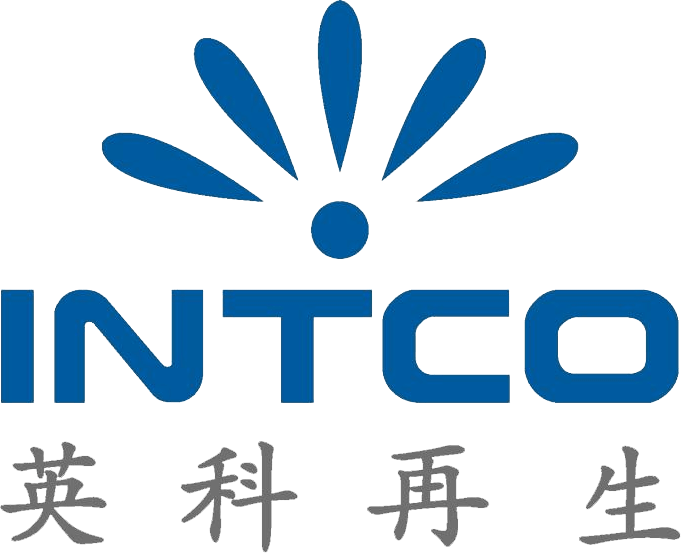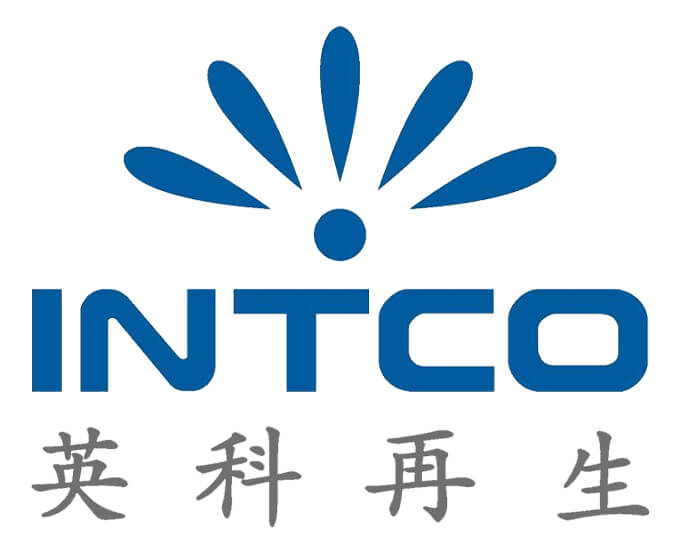Repurposed plastics have evolved from discarded materials into significant assets, fueling innovation and sustainability in multiple sectors. With improvements in recycling technology, the range of uses for recycled plastic chips/pellets has broadened, enabling producers to develop high-performance and environmentally friendly products. Recognizing the influence and possibilities of these materials is crucial for professionals committed to sustainable industrial methods.
Overview of Recycled Plastics Chips/Pellets
Composition of Recycled Plastics Chips/Pellets
Recycled plastics chips/pellets are derived from various types of waste plastics, which undergo a comprehensive process of collection, sorting, cleaning, and reprocessing. These raw materials can include polyethylene terephthalate (PET), high-density polyethylene (HDPE), and polypropylene (PP), among others. Each type of plastic is chemically broken down, purified, and then reformed into small, uniform chips or pellets that can be readily used in manufacturing. The controlled composition of these recycled materials ensures consistent quality and performance, making them suitable for a wide range of industrial applications.
Benefits of Using Recycled Plastics
The use of recycled plastics chips/pellets offers substantial environmental and economic benefits. Firstly, it reduces the dependence on virgin plastics, thus conserving natural resources such as petroleum. Secondly, recycling plastics consumes less energy compared to producing new plastic materials, leading to a significant reduction in greenhouse gas emissions. Additionally, these recycled materials help in lowering the overall waste in landfills, promoting a more sustainable waste management system. From a cost perspective, incorporating recycled plastics can help manufacturers reduce material costs, thus enhancing profitability.
Automotive Industry Applications
Manufacturing Car Parts with Recycled Plastics
In the automotive industry, recycled plastics chips/pellets are increasingly being used to manufacture a variety of car parts. Components such as dashboards, bumpers, and engine covers can be made from these materials, demonstrating excellent durability and cost-effectiveness. The use of recycled plastics in car manufacturing not only helps in reducing production costs but also aligns with the industry’s commitment to sustainability and regulatory compliance regarding environmental impact.
Enhancements in Vehicle Interiors
The interior of a vehicle presents various possibilities for utilizing recycled plastics chips/pellets. These materials can be used to make seat cushions, door panels, and headliners, delivering high-performance finishes that are also visually appealing. Manufacturers can take advantage of the flexibility of recycled plastics to produce different textures and colors, thereby increasing consumer attraction. In addition to enhancing aesthetics, incorporating these materials aids in lowering the vehicle’s overall carbon footprint.
Packaging Solutions
Sustainable Packaging for Consumer Goods
The versatility of recycled plastics chips/pellets extends to the packaging industry, where they are used to create sustainable packaging solutions. Products such as bottles, containers, and wrapping materials can be produced with high levels of durability and resistance to various environmental conditions. By opting for recycled plastics, companies can significantly reduce their ecological impact, meeting the growing consumer demand for sustainable and environmentally friendly packaging solutions.
Innovations in Protective Packaging
Innovative protective packaging made from recycled plastics chips/pellets is also gaining traction. These materials are used to produce cushioning, bubble wrap, and other protective materials that ensure the safekeeping of products during transportation and storage. The flexibility and strength of recycled plastics make them ideal for creating packaging solutions that not only protect but also reduce the packaging’s overall weight, lowering shipping costs and improving efficiency.
Construction and Building Materials
Durable Infrastructure Components
In the construction sector, recycled plastics chips/pellets are being used to create durable infrastructure components. Applications include the production of plastic lumber, roofing tiles, and piping systems. These materials offer superior resistance to weather, corrosion, and wear, making them suitable for long-lasting construction solutions. The use of recycled plastics in such applications not only supports sustainable building practices but also ensures compliance with environmental regulations.
Sustainable Insulation and Acoustic Panels
Chips and pellets made from recycled plastics are also utilized in creating insulation and acoustic panels for buildings. These materials offer outstanding thermal and sound insulation qualities, thereby improving energy efficiency and comfort for occupants. Using recycled plastics in this manner decreases construction material waste while boosting the sustainability profile of building projects, making them more attractive to environmentally aware stakeholders.
INTCO Recycling
When discussing how recycled plastics chips/pellets contribute to circular economy models, it is crucial to highlight the role of industry leaders who are making significant strides in this field. INTCO Recycling stands out as a beacon of innovation and sustainability, offering comprehensive solutions that align with the principles of a circular economy.
INTCO Recycling has established itself as a global leader in the recycling industry, specializing in the collection, processing, and repurposing of waste plastics. Their commitment to environmental stewardship is evident in their advanced recycling technologies, which transform discarded plastics into high-quality chips and pellets. These recycled materials are then reintroduced into the manufacturing cycle, reducing the need for virgin plastics and minimizing environmental impact.
The company’s dedication to sustainability extends beyond mere recycling. INTCO Recycling actively promotes the concept of a circular economy, where resources are reused and recycled to create a closed-loop system. This approach not only conserves natural resources but also reduces greenhouse gas emissions and landfill waste. By converting waste plastics into valuable raw materials, INTCO Recycling plays a pivotal role in fostering a more sustainable and resilient economy.
Textile and Fabric Production
Integration into Clothing and Footwear
The textile industry is quickly incorporating recycled plastic chips and pellets to manufacture eco-friendly clothing and footwear. These materials are converted into fibers and yarns, which are subsequently woven or knitted into fabrics for various apparel products. The use of recycled plastics in fashion items not only caters to the growing demand for sustainable textiles but also enhances durability and performance. Prominent brands are utilizing these materials to produce stylish, high-quality products that attract environmentally aware consumers.
Advantages in Home Furnishings
In the realm of home furnishings, recycled plastics chips/pellets provide a host of benefits. These materials are utilized to manufacture upholstery, carpets, and bedding products, offering a sustainable alternative to traditional textiles. The use of recycled plastics in home furnishings ensures durability, resistance to wear, and ease of maintenance. Additionally, these products often come with enhanced aesthetic qualities, such as vibrant colors and intricate patterns, making them a popular choice for modern interior design.
New Applications in 3D Printing
Utilization in Prototyping and Manufacturing
Recycled plastics chips/pellets have opened new avenues in the field of 3D printing, particularly in prototyping and manufacturing processes. These materials can be extruded into filaments used in 3D printers to create intricate and detailed prototypes. The ability to use recycled plastics in 3D printing not only reduces material costs but also supports sustainable manufacturing practices. Engineers and designers benefit from the flexibility and precision that these materials offer, allowing for rapid prototyping and iterative design improvements.
Advancements in Customization and Versatility
One of the significant advancements of recycled plastics chips/pellets in 3D printing is their role in facilitating high levels of customization and versatility. Manufacturers can create bespoke parts and components tailored to specific requirements, thereby enhancing product functionality and performance. This customization extends to various industries, including automotive, healthcare, and consumer goods, where precise specifications are critical. By using recycled plastics, companies can achieve a balance between innovation and sustainability.
Electronics and Gadgets
Protective Casings for Devices
The electronics industry has adopted the use of recycled plastic chips and pellets in manufacturing protective casings for devices. Items such as laptops, tablets, smartphones, and other gadgets benefit from the durable and lightweight characteristics of these materials. Recycled plastics offer the necessary strength to safeguard sensitive electronic components while also helping to reduce electronic waste. Additionally, these protective casings provide design flexibility, enabling manufacturers to improve the aesthetic appeal of electronic devices.
Enhanced Durability in Electronics Housing
Beyond protective casings, recycled plastics chips/pellets are also used in creating durable housings for a variety of electronics. Items such as remote controls, gaming consoles, and home appliances are increasingly being constructed with recycled plastic components. These housings ensure longevity and resilience against wear and tear, essential factors for consumer satisfaction and product life cycle management. The transition to recycled materials in electronics aligns with global efforts to promote e-waste recycling and environmental sustainability.
Environmental Impact and Sustainability Goals
Reduction in Plastic Waste through Recycling
The significant environmental impact of using recycled plastics chips/pellets is evident in the reduction of plastic waste. By diverting waste plastics from landfills and oceans, the recycling process helps mitigate the pollution caused by plastic debris. This reduction in waste not only preserves ecosystems but also promotes cleaner urban environments. Manufacturers that incorporate recycled plastics in their processes contribute to a circular economy, ensuring that resources are continually reused rather than discarded.
Long-Term Economic Benefits
From an economic perspective, the incorporation of recycled plastics chips/pellets offers long-term benefits. The production of recycled plastics typically requires less energy compared to virgin plastic production, resulting in cost savings. Additionally, companies can benefit from potential tax incentives and credits for engaging in sustainable practices. Over time, the reliance on recycled materials can lead to significant cost reductions, improved corporate reputation, and compliance with environmental regulations, all of which support the long-term viability of businesses.
In summary, the groundbreaking applications of recycled plastic chips/pellets are revolutionizing various sectors by offering sustainable and high-performance materials. These recycled materials provide a multitude of environmental and economic benefits, from automotive components and packaging solutions to textiles, 3D printing, and electronics. Companies such as INTCO Recycling are essential in advancing the circular economy, making sure that resources are effectively reused and repurposed to build a more sustainable future. As industries persist in innovating and integrating these materials, the potential for recycled plastic chips/pellets to foster sustainable manufacturing practices will continue to expand.















